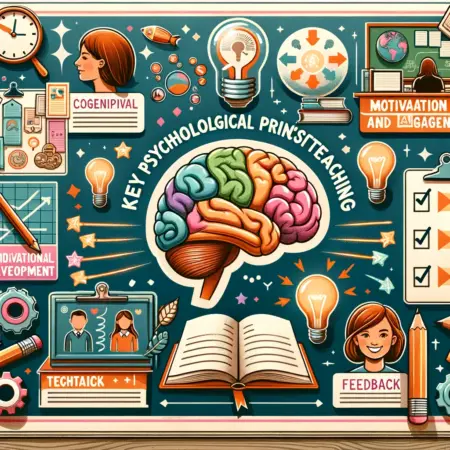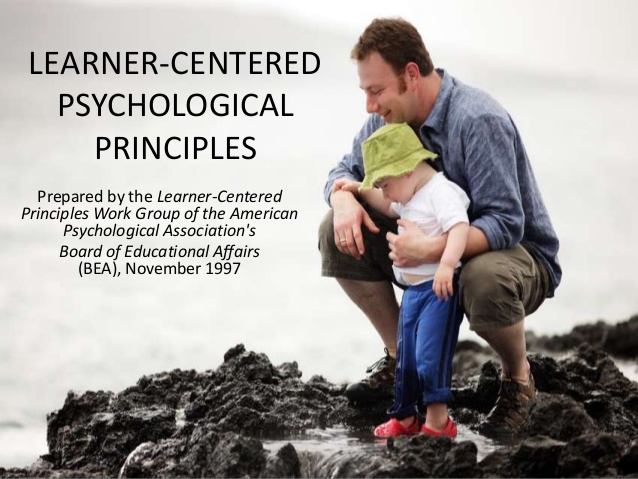Psychological Principles of Teaching is made effective by taking into account the psychology of the child. These principles are made by keeping in mind the abilities, aptitudes, capacities and potentialities of the learner. They are formulated from the student’s point of view only. They would always generate interest in the child for learning. The desire to learn not only makes his learning more effective and easier but it also helps him to retain the subject matter in mind for a longer lime.

These principles include every psychological method which will help to improve the learning of the child. We can see principle of feedback and reinforcement is based on the laws of learning where reinforcement has lot of importance. Further psychology has told that in a group child will always learn better; thus the principle of utilizing group dynamics has been framed. Similarly, Psychology has always laid emphasis on rest and, recreation.
General principles are followed by the teachers to make teaching-learning process effective whereas the Psychological Principles take the help of motivation of the students. General Principles cover a wide range as compared to the Psychological principles which work within limited range.
A few Psychological principles of teaching are explained here below:
Principle of Motivation. Teaching is a triple process which involves the interaction of the teacher, the taught and the subject matter. For this, co-operation between the teacher and the taught is a must. Now the’ conception of teaching-learning has changed. It is no longer a process of teaching only. The emphasis has now shifted from the teacher to the learner. The important thing is to see whether the learner co-operates, whether his interest is there. The teacher’s job is to motivate the learner by creating different methods and techniques of his interest. Motivation, therefore, is of supreme importance, i low to motivate the learners is the pertinent issue.
The children are interested in their surroundings. The teacher should, therefore, provide to them relevant material. Some problems linked with their life situations may be put forth. The learners will try to be inside that problem and make all efforts to find out its proper solution.
The Students should, therefore, be motivated towards the topic. The teacher has to teach. It is motivation which will make them interested in the topic and they actively participate in the class. Better learning on the part of students will be there if they are motivated towards the topic. Environment of the class can be changed to break the monotony of the class. Aids can be used for the smaller children and for the matured students. Previous knowledge testing can be a potent motivation.
For example, while teaching English grammar, the teacher should first explain the importance and need of learning English in present day world- how English can help them choose a better career and how it can be helpful for securing a good job. In this way, the students will be motivated to learn English well. Undoubtedly, motivation and interest are the two central factors in any process of teaching and learning.
Strange Facts About Psychological Principles Of Teaching where you can improve your Teaching.
Principle of Repetition and Exercise.
The teacher should show again several times what he supposed to teach in the class so that the learners are able to grasp and understand the subject objective clearly. It also helps them to retain it in their minds for a longer lie. Exercises for further practice may also be given as class work or as home assignment. Practice makes a man perfect. The students will fully grasp a thing when they are in a position to do it themselves. The teacher who makes use of exercises like revision, recapitulation, application of what has been taught to the students etc. can leach the students efficiently.
Principle of feedback
During teaching the teacher should try to give positive Reinforcement to the students. Some sort of feedback helps the students to learn things better. The knowledge of results should also be given to the learners side by side and as quickly as possible. In the classroom situation’s there are some students who have cramming habits, for to win the attraction of the teachers. The teacher should be able to judge about tins type of students. There are some other students who are creative type. He should encourage them to the maximum.
Principle of Sympathy and cooperation
During teaching, the teacher should pass sympathetic altitude and a co-operative bent of mind. Usually the students are afraid of the teacher. A good teacher is always kind and tries to understand every student. He shows fatherly affections and motherly cooperation to his students. Whatever maybe the situational good teacher remains sympathetic and affectionate.
Principle of self learning:
A god teacher encourages the self efforts made by the students for learning anything He teaches in such way so that the learners acquire habit of self learning. The teacher no longer believes in spoon feeding while ‘teaching. He may start with the lecture method but gradually he takes the students to sell learning situations. He remains there in the background helping and guiding them wherever they need some help or guidance.
Principle of group dynamic:
The teacher should understand group-dynamics. He should try to inculcate among the learners a suitable type of group-behavior. For this purpose he does his job of teaching in such a way that he Succeeds in making his students well behaved in every type of situation may be as individuals or in group.The children learn better in a group. They are also able to develop qualities of tolerance, co-operation, sacrifice etc. The teacher should, therefore, encourage group learning.
Creating a tabular format guide for the psychological principles of teaching involves summarizing key concepts in a structured and easy-to-understand manner. Here’s an example of how you might organize such a guide:
Psychological Principles of Teaching
| Principle | Description | Application in Classroom |
|---|---|---|
| 1. Growth Mindset | Belief that abilities can be developed through dedication and hard work. | Encourage effort over innate ability; praise the process, not just the outcome. |
| 2. Cognitive Load Theory | The idea that working memory has a limited capacity. | Simplify complex information; use visual aids; break tasks into smaller segments. |
| 3. Zone of Proximal Development | The difference between what a learner can do without help and what they can do with help. | Provide appropriate challenges; use scaffolding techniques. |
| 4. Reinforcement Theory | Behavior is influenced by its consequences. | Use positive reinforcement to encourage desired behaviors. |
| 5. Constructivism | Learning is an active, constructive process. | Encourage exploration and discovery; relate new information to prior knowledge. |
| 6. Multiple Intelligences Theory | Different individuals have different strengths and types of intelligence. | Use varied teaching methods to cater to different learning styles. |
| 7. Social Learning Theory | Learning is a social process and can occur through observation and interaction with others. | Encourage group work; use role models and peer learning. |
| 8. Metacognition | Awareness and understanding of one’s own thought processes. | Teach students to think about their own learning; encourage self-assessment and reflection. |
This table represents just a sample of the many psychological principles that can inform teaching methods. Each principle is briefly described, followed by practical applications in the classroom setting. This format can be expanded or modified to include additional principles and more detailed descriptions or examples as needed.
Conclusion
By applying the psychological principles of teaching, educators can create an optimal learning environment that maximizes student engagement, retention, and success. Prior knowledge activation, active learning, constructive feedback, a supportive learning environment, and differentiated instruction are just a few of the key principles that inform effective teaching practices. By integrating these principles into our pedagogy, we can facilitate meaningful learning experiences that empower students to become lifelong learners.
